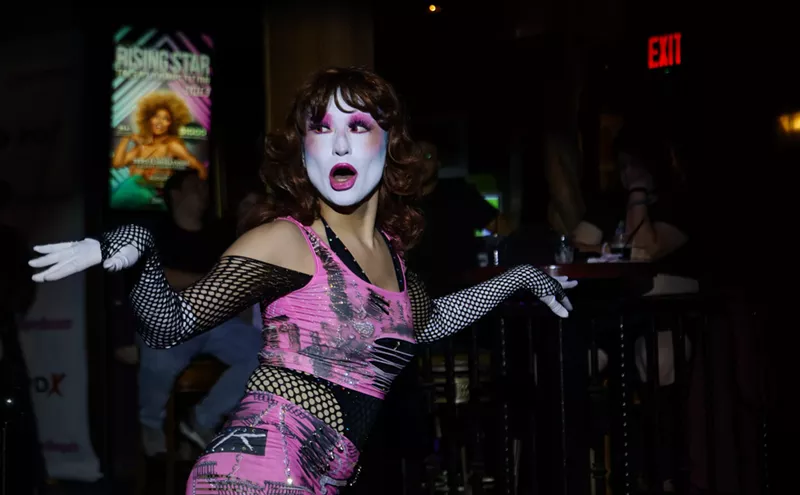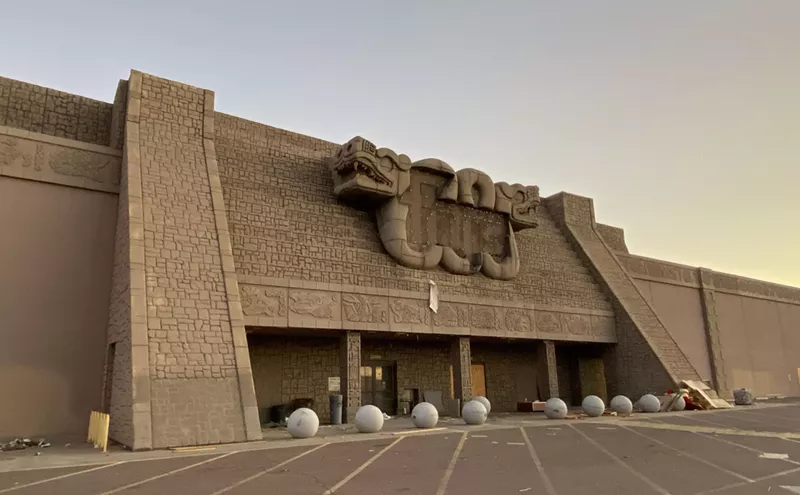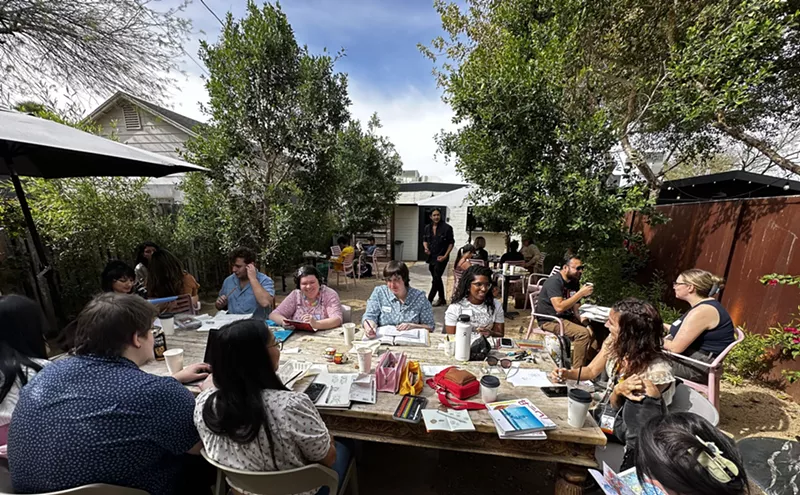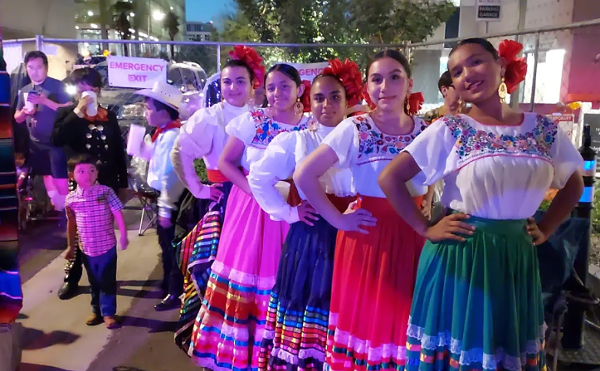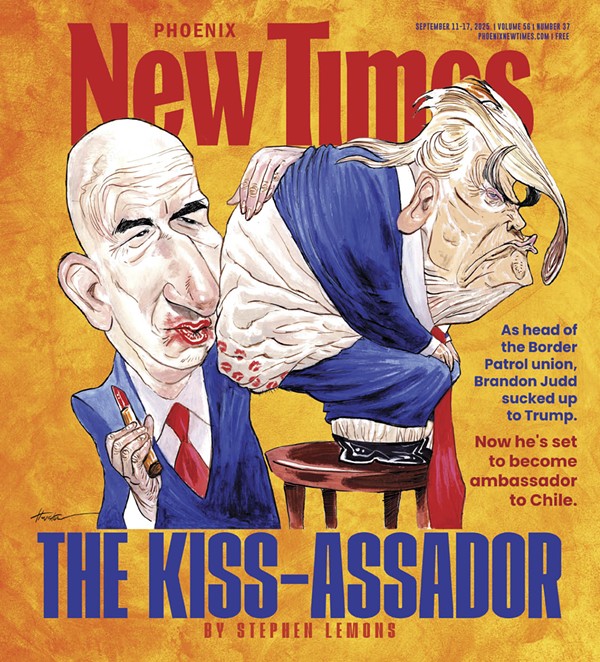The facts of the incident are disputed. It appears a police-escorted station wagon, transporting Grand Rebbe Schneerson, ran a red light, was hit by another car and swerved into a stoop, killing 7-year-old Gavin Cato and injuring his young cousin. A private Jewish ambulance arrived and helped only the Jews. Some observers reported that a group of black onlookers was beating the four Jews in the car, making their survival a priority for the ambulance crew. Whatever happened, it led to the murder of Yankel Rosenbaum, a Hasidic history professor who, three hours later, would be jumped by a group of black youths. Thus began three days of rioting among blacks, Jews and the police.
Now, nearly five years later, Arizona Theatre Company is presenting Fires in the Mirror: Crown Heights, Brooklyn and Other Identities, a collage of reactions to this sad episode of Americana.
Actress and playwright Anna Deavere Smith interviewed residents from the Crown Heights area, as well as leaders in the black and Jewish communities, about the incident and the racial climate in America. Smith's compilation is a fascinating, even-handed view of how two groups of people can interpret the same incident through their own particular lenses. Blacks see it as typical of preferential treatment accorded to Jews, and redolent of slavery. Jews see themselves as being used as scapegoats to further a black social agenda. The views are extreme and raise significant social issues, but Fires in the Mirror makes a better sermon than it does intriguing theatre.
Valiantly but with little success, director Matthew Wiener tries to make the monologues work, cutting and rearranging them to allow moreinteraction among the characters than theoriginal script indicates. Even with wonderful lighting designed by Tracy Odishaw, and R.Michael Miller's amazing set design (which includes a station wagon onstage), this production never quite comes to life.
The play was originally performed as a one-woman show by the author, and director Wiener divides the 23 different roles among three female performers whose characters vary in gender, race and age, including unknown and well-known personalities such as the Reverend Al Sharpton, Leonard Jeffries and Angela Davis. Because the playwright uses the unedited words of her subjects, and interaction among characters is minimal, the result--even though technically impressive at times--falls flat.
Grappling with this piece is no easy task for the performers. The strongest of the three, Cheryl Rogers, reaches the passion of her characters, showing the hurt and outrage that dominate much of the evening. As Gavin's father, she is a loving parent, mourning the loss of a child; as Sonny Carson, she is an angry black activist; and as a Lubavitcher woman explaining how she gets around the laws of the Sabbath, Rogers shows great comic ability. Focusing on the content of the monologues rather than distinguishing her characters from one another, Rogers delivers an honest performance throughout.
Angela Bullock plays many of the Jewish characters, giving them a wonderful sense of astonishment at the events swirling around them. Another highlight is her portrayal of Seventies activist Angela Davis, who offers compelling thoughts on the Clarence Thomas/Anita Hill hearings and the difference between being racist and supporting race as an identity.
Missing the mark with this difficult assignment is Laurine Towler, who unfortunately has incorporated a choppy diction for most of her characters that detracts from their realism. Coming across like an overemoting acting student, Towler is no match for her polished co-stars. Particularly annoying is her noisy portrayal of Norman Rosenbaum, Yankel's brother, and her unintelligible opening monologue as an anonymous young man.
When approaching material so laden with potential, one hopes to recommend it. In this case, I encourage you to read the interviews in Smith's original script, a more arresting treatment of these issues than the lecture version currently being offered by ATC.
Arizona Theatre
Company's production of Fires in the Mirror: Crown Heights, Brooklyn and Other Identities continues through
Saturday, February17, inCenter Stage atHerberger Theater Center, 222 East Monroe. For more details, see Theatre listing in Thrills.



